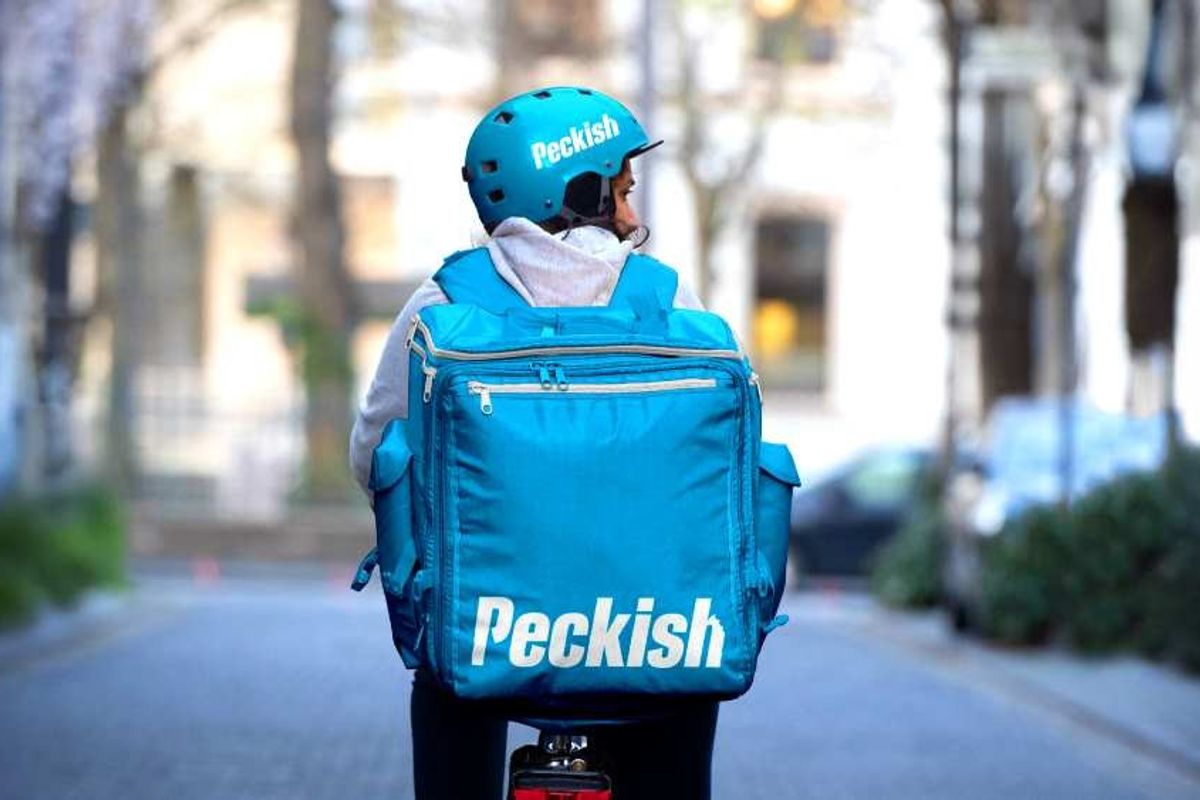Co-op has announced the launch of a new rapid delivery grocery app exclusively for small and independent retailers so that they can offer speedy deliveries to communities.
As announced today (27) by Co-op, the new million-pound rapid delivery grocery app called Peckish will enable small, often family-owned, independent grocery businesses, shops and other co-operative retail societies to provide an online grocery shopping and delivery service to their local customers.
The Peckish app overcomes barriers that independent retailers face when moving to sell online, including cost, scale and resource, allowing smaller-scale bricks and mortar retailers to have a presence online and enabling more consumers to quickly and conveniently shop local and support their high street stores.
Co-op is making an initial £1 million investment for year one on Peckish, following a successful 30 store trial last year, and is targeting an ambitious first year sign up of over 1,000 stores, with potential to treble that by year three.
Shoppers can use Peckish to choose their shop from the range of products the individual retailer has selected to put online.
Retailers select the price, enabling them to match in-store prices and can choose whether to deliver the online orders themselves, or for it to be managed through Co-op’s order management system and delivered quickly and conveniently locally through Co-op’s delivery partners, including Just Eat and Uber Direct, in as little as under 30 minutes.
Peckish will link with a retailer’s EPOS system, saving manual tasks such as pricing and stock control and management.
Retailers who sign up will also receive a range of support including data, trends and insight from Co-op’s leading quick commerce team, point of sale material, window stickers, leaflets, shelf talkers, digital and social media assets, posters and banners.
Matt Hood, Co-op Food Managing Director, said, “The growth and popularity of quick commerce in the UK is exceptional, as consumers appetite for a convenient grocery delivery service in as little as 30 minutes from ordering, increases almost weekly.
"We are experts in running small, local convenience shops and the leading quick comm operator, and I’m excited about being able to share this expertise with all our neighbouring independent retailers, to help them extend their customer reach and services online, which in turn, can help transform their businesses.
“We know that smaller local shops, like our own, operate at the heart of the local community life. More than a shop, they are a community hub, creating value locally through job creation, community participation and their support of local suppliers.
"The ‘shop local’ sentiment is strong amongst consumers, and Peckish can help more retailers connect quickly online with their customers, providing greater consumer choice locally, and promoting healthier and more viable high streets and communities.”
Earlier this month, wholesaler Booker launched a brand-new ordering platform Scoot exclusively for its symbol group retailers to help them deliver local groceries to their customers’ doors, in as little as 30 minutes.
The new ordering platform connects shoppers with their local participating independent retailer enabling them to order food, drinks and household essentials from a curated list of products chosen by the retailer.


